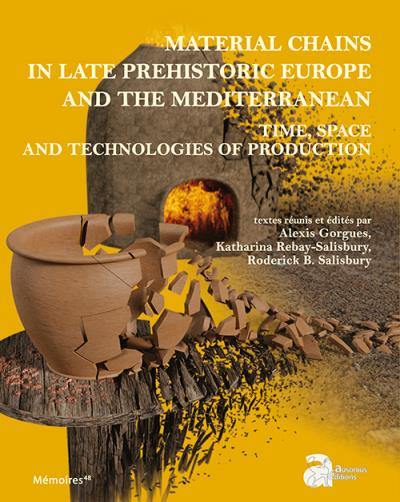
Fiche technique
Format : Relié sous jaquette
Nb de pages : 201 pages
Poids : 1136 g
Dimensions : 23cm X 29cm
ISBN : 978-2-35613-194-2
EAN : 9782356131942
Material chains in late prehistoric Europe and the Mediterranean
time, space and technologies of production
Quatrième de couverture
Cet ouvrage, en langue anglaise, réunit diverses contributions portant sur l'étude archéologiques des processus de production. Au travers de différentes études de cas portant sur des contextes variés au sein de l'Europe et de la Méditerranée de la Protohistoire (âge du Bronze, âge du Fer), les auteurs se sont attachés à répondre à des questions aussi variées que : comment identifier et caractériser archéologiquement un espace technique ? Comment interpréter ces espaces ? Comment pouvons-nous reconstruire le cadre social dans lequel s'insérait l'activité technique ? Quelle était sa temporalité ? Quels biais les modalités de formation du registre archéologique peuvent introduire dans nos raisonnements ? Onze chapitres envisagent ces thématiques au travers de recherche portant sur des horizons géographiques variés, du Liban à l'Espagne en passant par l'Europe continentale, et sur des activités diversifiées, de la poterie à la métallurgie en passant par le textile.
Material chains in late prehistoric Europe and the Mediterranean
This book brings together contributions about the archaeological study of production processes. Through different case studies from Late Prehistoric Europe and the Mediterranean, it considers theoretical and methodological aspects of the research on technologies of production. It tries to bring answers to such questions as : how to identify and characterize working spaces ? How to interpret them ? How may we reconstruct the social framework in which the production processes took place, their temporality ? What biases does the constitution of the archaeological record introduce in these reconstructions ? Eleven papers consider these issues in different contexts, from Lebanon to Spain, and from potting to metal making.





